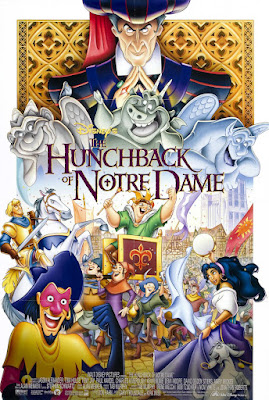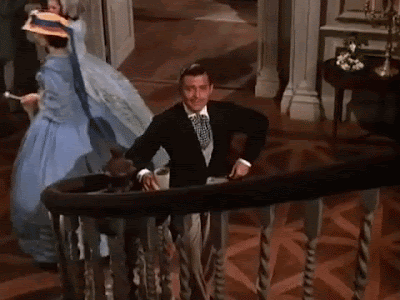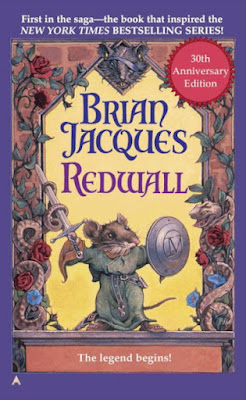They say anyone who wants to write well must read well. If you want to be a decent writer, you should (quite literally) take a few leaves out of other writers' books, both good and bad.
I most certainly agree with that advice. After all, how else would I be inspired to (try to) write a few books all my own?
(All images property of their respective owners.)
I find it utterly ridiculous that many aspiring authors these days refuse to read because they "don't have the time" or they're "too scared of being a copycat" and blah, blah, blah.
In my opinion, not reading a book is the absolute worst kind of insult. Even a bad review signifies someone at least took the time to look at your work.
Not to mention it's grossly hypocritical, since this kind of logic suggests nobody should bother to read you, either.
As for being a copycat, there's a fine line between being inspired by another writer and making a deliberate carbon copy with a few minor tweaks at best. It's a safe bet that every imaginable story has long since been told, but the real difference is in how unique your voice is.
Take Disney, for instance. Just about all of their most famous works are based on fairy tales and classic literature, but it was the way they (re)told those stories that won the audience over.
Opinions vary drastically on how well Disney does this. All the same, I give Disney some credit for giving me a "taste test" and introducing me to these classic stories in a way I might not have otherwise, or else I wouldn't have been quite as receptive.
So, today, I'm going to do a sort of review of the classic (and not so classic) stories I'm reading right now. By "sort of" I mean I'm not waiting until I'm at the very end, and I'm juggling multiple stories at the same time: a chapter for this story, a chapter for that story.
I'll try to refrain from spoilers but I'm just letting you know how well I've been hooked thus far. Some of these stories I already know quite well, while others I'm exploring for the very first time.
For starters: Gone With the Wind by Margaret Mitchell.
This one's a doozy because it's huge; the movie alone lasts nearly four hours.
Then again, they had a lot more time and patience for longer books (and longer movies) in the old days. For some people, reading was the only entertainment they had at all, and the writers definitely got paid more if they put more words on paper.
At my current job, I often like to compare the names of my customers with the names of famous people. Like, for someone named Josh, I say, "As in, Josh Groban!"
Or for someone named Julie, I say, "Like Julie Andrews!"
It's all in good clean fun and my customers find it amusing enough.
A little while ago, a customer gave me the name Rhett and I just had to say, "As in, Rhett Butler!" The funny bit was he assumed I was "too young" to be familiar with Gone With the Wind, like there's some kind of age restriction to know or even like certain books, movies, and music. I prefer to think of myself as having good taste.
Heck, most of what was popular back then is so much better than most of what's popular today. At least, I think so.
So, I will admit the book's prose is rather heavy. There's a lot of detail ("info dumps," to quote some of my college professors) and you have to be a little patient wading through the pool of words.
Because this takes place in the Deep South in the Civil War era (chapter 1 happens in 1861, right after the attack on Fort Sumter), there are a few descriptions of black people and the "normalcy" of owning slaves, as well as the style of black characters' dialogue, that may not sit too well with modern audiences.
However, once you get over all that stuff, it's quite an engaging story. At any rate, my interest has been snared.
For all their wordiness, the descriptions, especially those of the landscapes, are very lush and I get a crystal-clear picture in my head straightaway.
The characters aren't particularly likable but they still have a certain charm about them, almost like a character you "love to hate."
Scarlett O'Hara makes me think of my own Adela Buchanan Wiles: plenty pretty on the outside but completely spoiled and empty-headed on the inside. Neither of them can stand to not be the center of attention, nor do they like to dwell for long on anything serious.
One of these days, I just might be brave enough to watch the movie all the way through.
Another story I'm tackling for the first time is Redwall by Brian Jacques.
I heard a great deal about this series, but as to reading it for myself, I dragged my feet for the longest time. Though I'm a skeptic by nature, my biggest reason for dodging this book is a lot more personal, even downright painful: two close friends with whom I'd had an ugly falling-out (we haven't spoken for several years now and I've long since abandoned hope) loved Redwall to pieces.
Ultimately, I decided I'm not going to let the past stand in my way anymore. Whether I'll check out the rest of the series is still up in the air, but I'm finally giving book 1 a try.
So far, I really like it. It does have a tiny bit of a Disney vibe, since it features animals that walk, talk, and wear clothes like humans, but it's not at all "cartoony" or "cutesy." It's very exciting, with a sort of Lewis/Tolkien-like narrative of which I'm quite fond.
The characters are engaging, too. Cluny sounds legitimately dangerous while Matthias is both relatable and adorable.
Small word of caution: don't read the descriptions of the food on an empty stomach!
Next book: The Magician's Nephew by C.S. Lewis.
As aforementioned, I positively adore C.S. Lewis. He's the author I try to emanate the most, to the point where I'd consider it one of the greatest honors if anybody ever compared me to him. I'd be much more flattered to be compared to him than to J.K. Rowling, though a Rowling comparison would be nothing to sneeze at.
Granted, most people are most familiar with The Lion, the Witch, and the Wardrobe and like it best, myself included. Even so, it's wonderful to read the other Narnia books and sort of "connect the dots."
While Lewis can get a little sparse with the details, I appreciate how he subtly encourages you to use your own imagination, to fill in the blanks your own way.
I like Digory and Polly and how well they get along almost instantly, something that was almost unheard of in their era. I'm a softie for Christian fantasy, too, and there's a definite "Adam and Eve" moment when the kids are first introduced to those magic rings. Uncle Andrew is both intriguing and aggravating, a truly morally ambiguous character to whom you can neither get too attached nor stray too far away.
Sure would be nice to see a story like this in movie format.
Next book: The Hobbit by J.R.R. Tolkien.
This is an interesting example because I already know how the general story goes.
While I've yet to see any of the live-action movies all the way through, I did watch the 1977 version a few times and Rankin-Bass is known to be fairly faithful in their film adaptations. For that matter, it was through Rankin-Bass that I knew Tolkien's story existed in the first place.
Now I'm endeavoring to read Tolkien's official text with my own eyes, from start to finish.
Fun fact: Tolkien and C.S. Lewis were good friends and writing buddies, so they often "borrowed" from each other and you'll find quite a few similarities in their books.
While Lewis goes very light on the details (almost too light in some cases), Tolkien is much more descriptive, though I'll say The Hobbit is nowhere near as verbose as Gone With the Wind, at least not now. All the same, I don't mind some verbosity on occasion as long as it's done well; I only hate when the author takes far too long to get to the point and the details are barely interesting to begin with.
Opinions also vary on how necessary Tolkien's songs and poems are. One online reviewer said he idolizes Tolkien but always skips the songs because he just can't stand them.
Personally, I like them. I love a catchy poem here and there, you can tell Tolkien's poems were written with great care, and in some cases, those "musical numbers" are the story.
And now I'll finish this with a novel that may be a bit less of a classic but it still holds a special place in my heart: Don't Die, My Love by Lurlene McDaniel.
This is probably Lurlene McDaniel's best-known novel. It most definitely introduced me to her work.
Admittedly, her books can be a bit predictable and more than a bit schmaltzy, especially with the teenage romance and how sure the teens are that what they're experiencing is "true love." I believe her best books are the ones that focus more on the loss of a parent, a sibling, or a best friend, where the romance takes more of a backseat.
That said, I can't bash McDaniel all that much, either. At least her teen love stories are vastly superior to most of the ridiculous, nauseating, utterly fake crap out there, like Twilight.
Besides the semi-believable romance between Luke and Julie, McDaniel also keeps the story interesting with plenty of impressive research on cancer (I learned enough about cancer through McDaniel's work to do quite well on a couple of crucial tests in school) and the overall pace is fairly brisk.
So, she at least cuts to the chase and the readers are never bogged down, which is nice.
That's all for now, folks. Wish me happy reading and happy writing!




























No comments:
Post a Comment